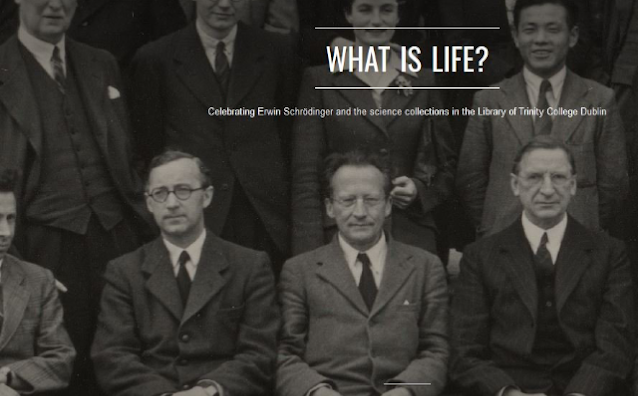To mark the 75th anniversary of the historic lectures given by Erwin Schrödinger at Trinity, a two-day event has been organised by the Trinity Biomedical Sciences Institute on September 5 and 6 at the National Concert Hall.
‘Schrödinger at 75’ will host a range of scientists who are leading research in their respective fields. The historic backdrop is a series of influential lectures titled ‘What is Life?’ given in 1943 at Trinity by the Nobel Prize-winning scientist who, although known largely for his contributions to physics, was also an influential figure in advancing our understanding of biology. His lectures, which gave rise to his 1944 book ‘What is Life?’, provided other contemporary scientists with a good basis on which to explore how biological systems work by taking into consideration our understanding of chemistry and physics. Renowned geneticists, Watson and Crick, with the contribution of Rosalind Franklin and Maurice Wilkins, discovered the double helical nature of DNA, and said that their work was inspired by the ideas proposed by Schrödinger.
In practice, ‘Schrödinger at 75’ will be completely different in style to the lectures given by Schrödinger, which perhaps is to be expected. Our understanding of biology and of science in general has developed immensely, and with this extended understanding comes the need to effectively integrate and communicate discoveries made in all the different fields. By bringing together the leading scientists from across the globe at a single venue, ‘Schrödinger at 75’ will provide those who attend with an overview of the latest research being conducted in various areas including genetics, immunology and neuroscience.
The speakers come from many different scientific backgrounds. Some, like Schrödinger, are physicists by profession, but their research strives to further our understanding of biology. Danielle Bassett is one example, with her expertise in mathematics and physics applied to better understand how components of the brain interact to form complex systems. Phillip Campbell, whose background is in aeronautical engineering, has been editor-in-chief of the scientific journal Nature since 1995 and will share his breadth of knowledge and experience in the world of scientific publications. Many of the speakers have been awarded prizes for their research over the years, with some having won the Nobel Prize. Bernard Feringa, John O’Keefe, and Ada Yonath are among these. The varied scientific backgrounds of each of these scientists is a testament to the objective of an event such as this, which seeks to paint a broader picture of scientific knowledge by bringing all types of scientific disciplines together.
Science communication is therefore at the core of the event. Among the speakers themselves, there is certainly no lack of scientists who, in addition to their research, have also dedicated themselves to writing popular science books which make science accessible and enjoyable for everyone. To cite one example, Nick Lane is an evolutionary biochemist who has written a number of critically acclaimed books on the history of life on Earth. His book ‘The Vital Question’ in particular reveals that Lane’s approach to the question of the origin of life resembles the approach taken by Schrödinger all the way back in 1943.
In a world where the truth can be ignored in favour of convenient falsehoods, it is essential that aspiring scientists learn to see the world through an analytical and rational lens. ‘Schrödinger at 75’ is an ambitious event and intends to do nothing less than to provide an overview of the ‘The Future of Biology’. If the line-up of speakers is anything to go by, it will succeed in its ambitions.






